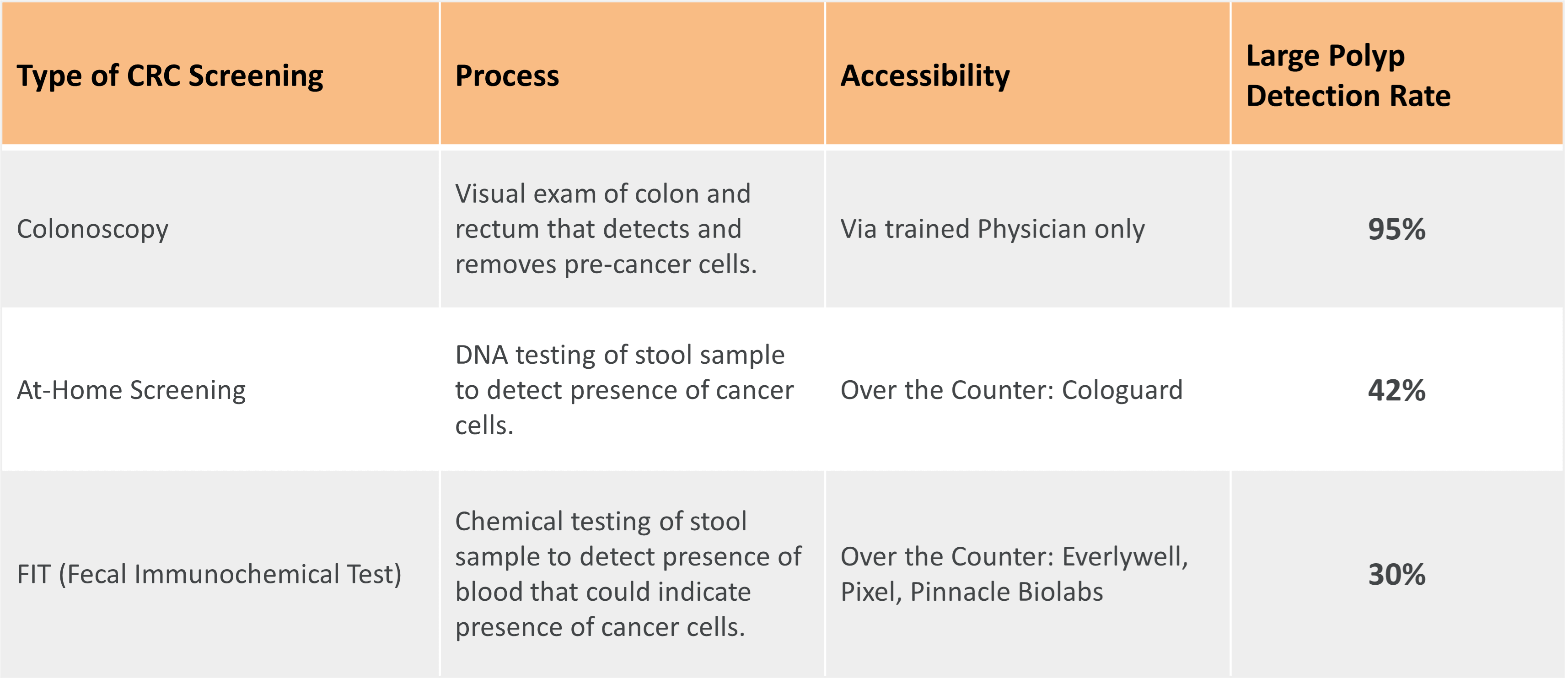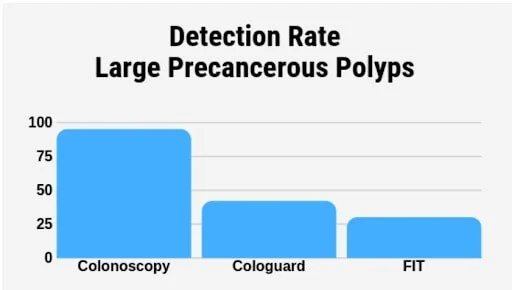Request an Appointment
About Home Screenings
Colorectal cancer (CRC) is the presence of cancer cells in the colon and/or rectum and is often referred to as colon cancer. Colorectal cancer claims over 50,000 lives every year and is the second most common cause of cancer death in the U.S. Colon cancer is preventable, treatable, and beatable – but only with early and accurate detection.
Because colorectal cancer often begins as growths in the colon called polyps, finding and removing polyps is the best way to prevent colon cancer.
There are three types of colorectal cancer (CRC) screenings:


Unfortunately, large polyps can go undetected with FIT and At-home screening tests like Cologuard. When polyps aren’t found and removed, it increases the patient’s risk of developing colon or rectal cancer. And, when polyps are accurately identified through a positive FIT or an At-home screening test, a colonoscopy is then required to remove the polyps.
Colon Cancer Detection vs. Prevention
At-home tests are designed only to detect cancerous indicators (DNA) in the fecal sample provided, and 58% of the time, they do not identify dangerous pre-cancerous polyps. Although they are considered screening tests, they must be repeated every three (3) years if initial test results are negative. At-home tests also provide a significant percentage of False-Negative and False-Positive results. A positive test result from the At-home or FIT test will require a colonoscopy to validate the results.
A colonoscopy serves to detect and prevent cancer as it identifies over 95% of dangerous, pre-cancerous polyps and removes them at the procedure time. It can also enable the capture of tissue samples for pathology testing to determine more accurately if cancerous cells are present. As a result, the colonoscopies are far more conclusive and provide preventative measures by removing any polyps identified in the colon. This procedure is a “screening” colonoscopy. When polyp/tissue is identified and removed during the screening colonoscopy, and pathology markers do not indicate the presence of any pre-cancerous or cancer, another screening colonoscopy is typically not required for ten (10) years.
Home Screening Cautions
Home screening test results should be interpreted with caution. A positive test result does not confirm the presence of cancer. Patients with a positive test result should be referred for a diagnostic colonoscopy. Conversely, a negative test result does not ensure the absence of cancer. Patients with a negative test result should discuss when they need to be tested again with their doctor. False positives and false-negative results can occur with At-home screenings and FITs. In recent clinical studies, 13%-22% of people without cancer received a positive result (false positive), and 8%-17% of people with cancer received a negative result (false negative). Rx only.
Understanding the differences between the types of colon cancer screenings and what to expect with each is essential. A colonoscopy remains the most effective form of cancer detection and the ONLY form of colon cancer prevention. However, if the idea of an At-home or FIT screening is more comfortable, do it. It’s essential to get your initial screening if you are 45 years old and have not already done so.
Act Now
If you have more questions about home screenings or want to schedule a colonoscopy, reach out to a DHAT provider in your area to discuss your options. Bottom line, colorectal cancer screening saves lives. Your life is worth a simple, painless procedure to help ensure your long-term health. Find a Gastroenterology Associates of Indiana provider near you at here.
